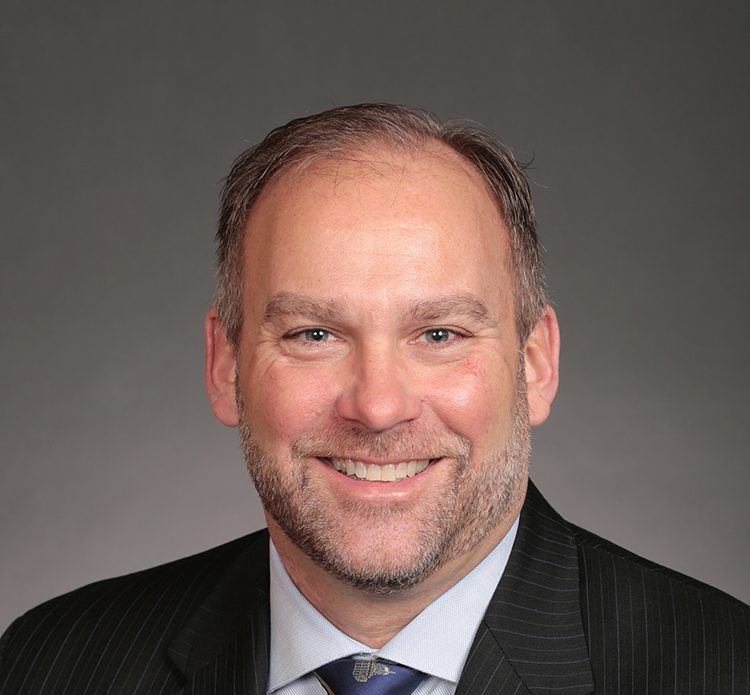I can honestly say that in my first two sessions, I do not think we have moved and voted on as many bills by this time as we have this week alone.
We are only five weeks in, and we have already been pulling some long days, fueled by an ambition to make up for the magnification of Iowan’s priorities and lost time bought on by the coronavirus pandemic.
In the face of what we feel is a historic session that has monumental responsibilities, my fellow lawmakers have not blinked. They have shown up ready to work every day, with seldom a complaint and ready to encourage.
This drive is evidenced by the previous week, a most productive one indeed. In fact, this week one of the bills that I was proud to be the lead sponsor passed the Iowa House on a 93-1 vote. This bill, HF 369, raised the Iowa adoption tax credit over two years to match the federal tax credit at $10,000. A small step to making adoption more affordable and accessible to Iowans.
In this issue, I’ll update you, below, on the progress made towards addressing Iowan’s top priorities since my last newsletter, including the passing of this year’s Supplemental Student Aid education funding bill and multiple bills aimed at keeping hardworking Iowans, in Iowa, for generations to come.
New Rural Community Funds Available Now
This week Governor Reynolds and the Iowa Economic Development Authority (IEDA) announced two competitive funds available for rural communities with a population under 20,000. Funding of up to $400,000 has been allocated to two funds for current fiscal year (FY) 2021 through FY 2022.
Rural Innovation Grant Program
This program provides up to $300,000 in grants supporting creative, non-traditional ideas that focus on current issues and challenges faced by rural communities associated with the themes of community investment, growth, and connection.
Rural Housing Assessment Grant Program
This program provides up to $100,000 to support the use of publicly available online information through the “Profile of Iowa” tool and rural community efforts to interpret the information. It can also be used to implement changes to development codes, local ordinances, and housing incentives specific to their community needs in partnership with Iowa State University Extension and Outreach.
Guidelines and scoring rubric for both programs are available on the Office of Rural Revitalization’s website. The programs, defined in Iowa Administrative Code, are administered by the Center for Rural Revitalization, a division of IEDA, in consultation with the Governor’s Empower Rural Iowa Initiative Task Forces.
Applications for FY 2021 are currently being accepted via iowagrants.gov and are due by April 16, 2021.
SSA Set at 2.4%
House Republicans passed the annual school funding increase out of Education Committee on Monday and out of the House on Thursday.
Supplemental State Aid (SSA) was set at 2.50% for FY22 for both the Regular Program and the Categorical Supplements. It also extends the Property Tax Relief Payment (PTRP) an additional year which has the state pick up any property tax growth in the Additional Levy portion of the school funding formula.
The State Cost Per Pupil (SCPP), including the District Cost Per Pupil equity, amount on which the school aid formula is based increases from $7,048 to $7,227, a $179 increase.
This also continues to address transportation equity which is raised at the same rate as SSA.
The percentage is on par with what has been done in recent years, but the fact of the matter is enrollment was down by about 7,000 students this school year. Local school boards made decisions to go online or stay in-person and parents and students adjusted according to their personal needs by homeschooling or switching to private schools.
Combined, those decisions led to an enrollment drop. It is important to understand that this funding level is not a cut to public school funding. This is a 2.4% increase, which results in an approximately $40 million dollars in new money going to the school districts.
Iowa Lawmakers have, and always will, continue to prioritize the schools and students of Iowa with the continuous increase of Supplemental State Aid, transportation equity, and adding an additional ten dollars per student to address equity issues.
Small Town Focus In Recruiting More Medical Professionals
This week, the House Human Resources Committee passed multiple bills to recruit and retain health care providers in Iowa.
House Study Bill 168 and House File 270 focus on medical training at the University of Iowa, the state’s only taxpayer funded medical school and hospital.
HSB 168 focuses on the initial medical school training by requiring the University of Iowa medical and dental schools to have 75% of their admitted students be from the state of Iowa.
HF 270 focuses on the next stage of health care education, at the medical residency level following graduating from medical school. This bill similarly requires the University of Iowa Hospitals and Clinics to offer a medical residency audition rotation and interview to those with an Iowa connection (Iowa resident, undergraduate degree from an Iowa college, or medical degree from an Iowa medical school) in the top 6 most needed medical specialties in Iowa, including OB/GYN and psychiatry.
Iowans know that if a medical student or medical resident has a connection to the state and then is able to complete their training here while in their mid-20s and 30s, it is more likely they set roots, start their family, and stay and practice in Iowa.
The primary role for a state university that receives hundreds of millions in taxpayer funding should be training medical professionals to practice in Iowa after graduation. Too often our state university wastes significant time and money training medical students/residents that have no interest in staying in Iowa. For example, not a single graduate of the last two OB/GYN residency classes from UIHC stayed to practice in Iowa.
The committee also passed Senate File 129. This bill was brought forward by the Iowa Medical Society to expand access to the Rural Iowa Primary Care Loan Repayment Program by allowing OB/GYNs to participate in the program, allow for additional part-time practice options for those receiving the loan repayment, and to allow psychiatrists to practice in additional Iowa communities and still receive loan forgiveness.
My colleagues and I are continuously working to find ways to expand health care workforce and these bills are important steps to build up the pipeline of future Iowa physicians.
That’s all for this week. As I’ve said, I can’t remember, in my first two years in chambers, voting on this many bills by this time as we have already this session. While the workload is, at times, a challenge, I look forward to seeing all that we can accomplish this session.
Child Care
Child care is a major priority for House Republicans. And this week we delivered. The Iowa House passed six pieces of legislation to address Iowa’s child care shortage from multiple angles.
HF 230 – Increases the income threshold for the Child Care Tax Credit from $45,000 to $90,000.
HF 370 – Creates an incentive for employers to provide child care for their employees by providing a tax credit up to $150,000.
HF 260 – Allows individuals providing child care in their homes to take care of 6 or fewer children, an increase from 5 or fewer.
HF 292 – Raises Iowa’s child care rates to the 50th percentile according to the Market Rate Survey.
HF 302 – Creates an “off ramp” from Child Care Assistance program so parents can continue to grow in their career without losing their child care assistance entirely, all at once.
HF 301 – Creates a fund to provide child care workforce grants on a dollar-for-dollar matching basis from communities. These programs will help move child care providers up the pay scale and the education pathway.












